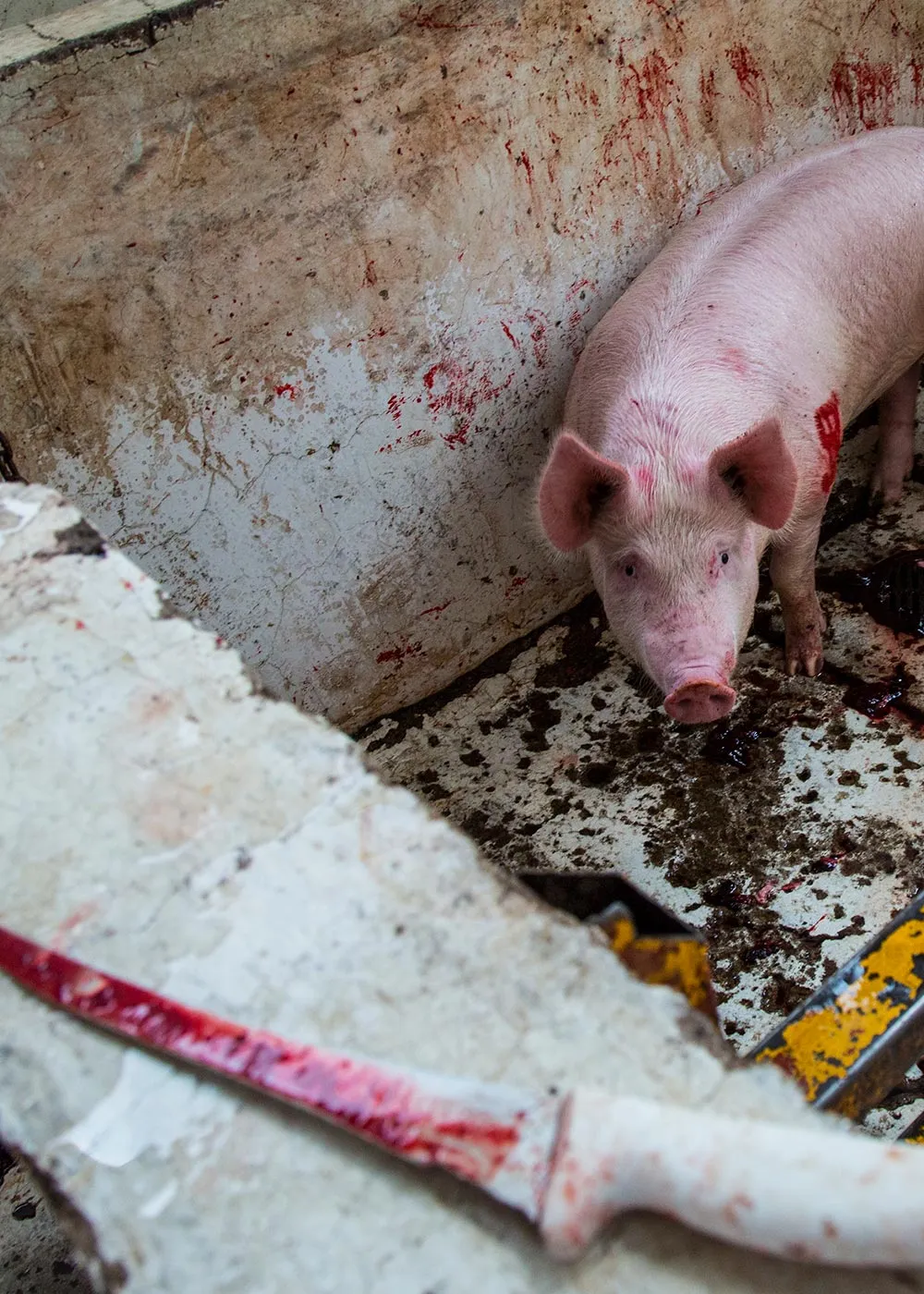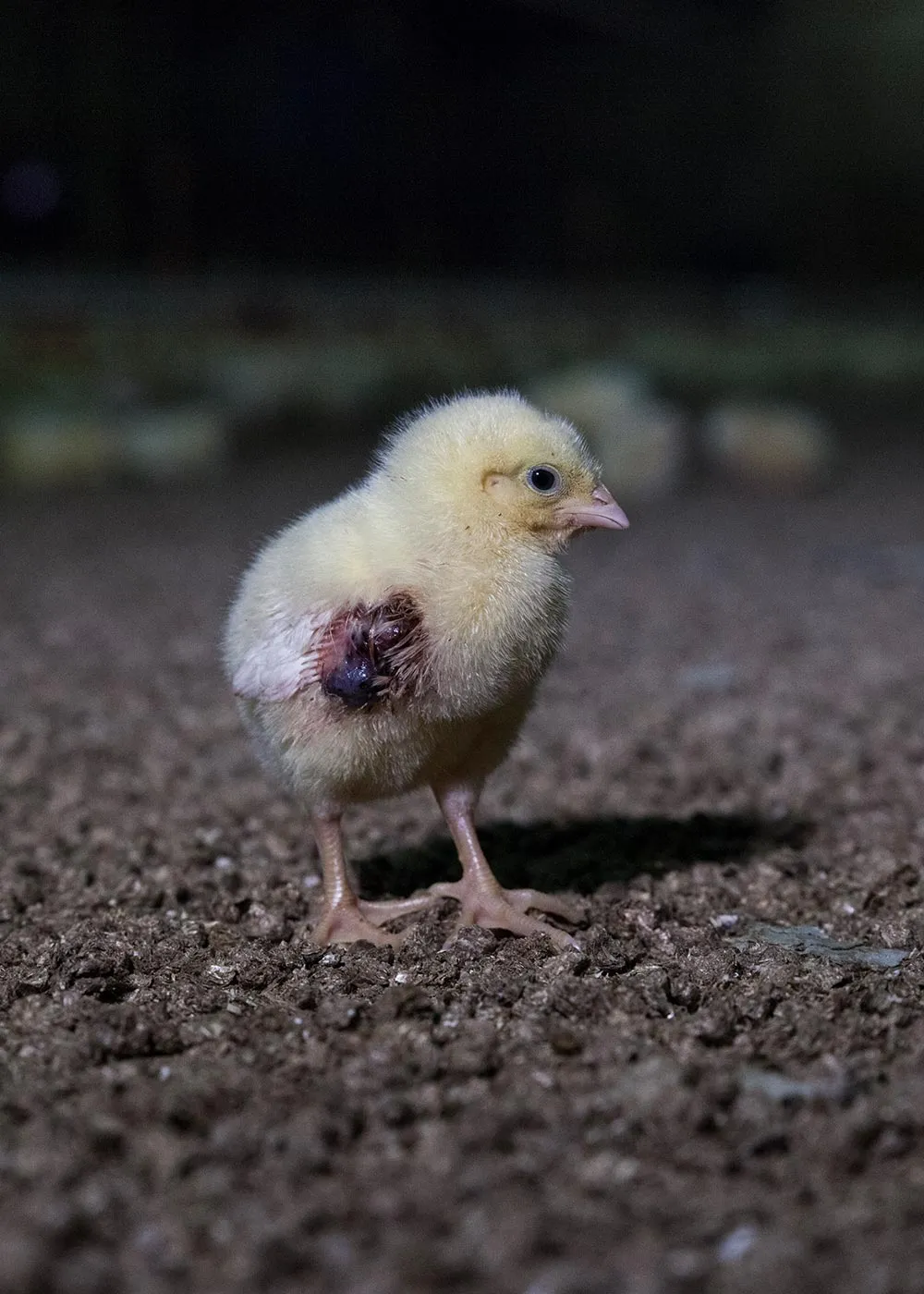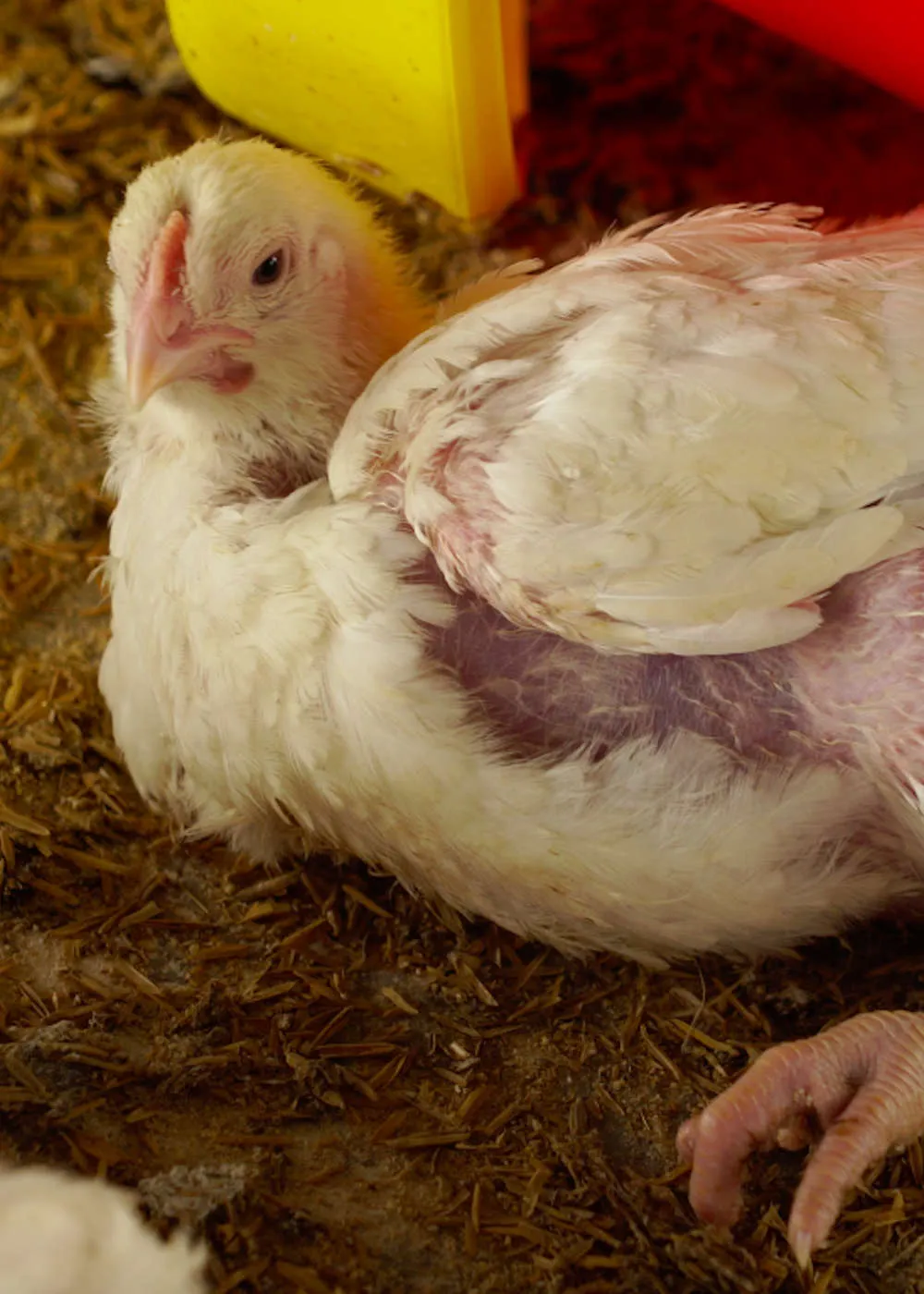
THE MEAT INDUSTRY
Animals killed for their meat begin suffering the day they are born. Animal Equality works to end this cruelty.
ANIMALS KILLED FOR MEAT
Cows, goats, pigs, chickens, fish and other animals raised for food have little legal protection from cruelty. Although they are individuals who are capable of thinking and feeling, and who want to enjoy their lives, they linger in misery on factory farms all around the world.
Cows
Cows, bulls and buffaloes are socially complex animals who have friendships and experience pain, fear, and anxiety when beaten or separated from their herd.
In India, cattle are not specifically bred for meat. The unproductive animals from the dairy industry are sold for meat through cattle markets. At cattle markets, these unproductive dairy cows, buffaloes and male calves are sold for slaughter. They are not given any food, water or shelter.
Up to 30 cattle are crammed in a truck that is meant for only 6 animals! Handlers prod them with sticks or fingers, rub chilly in their eyes, twist and break the tails and drag them by their tails and nose ropes. All of this cruelty occurs before they even reach the slaughterhouse.
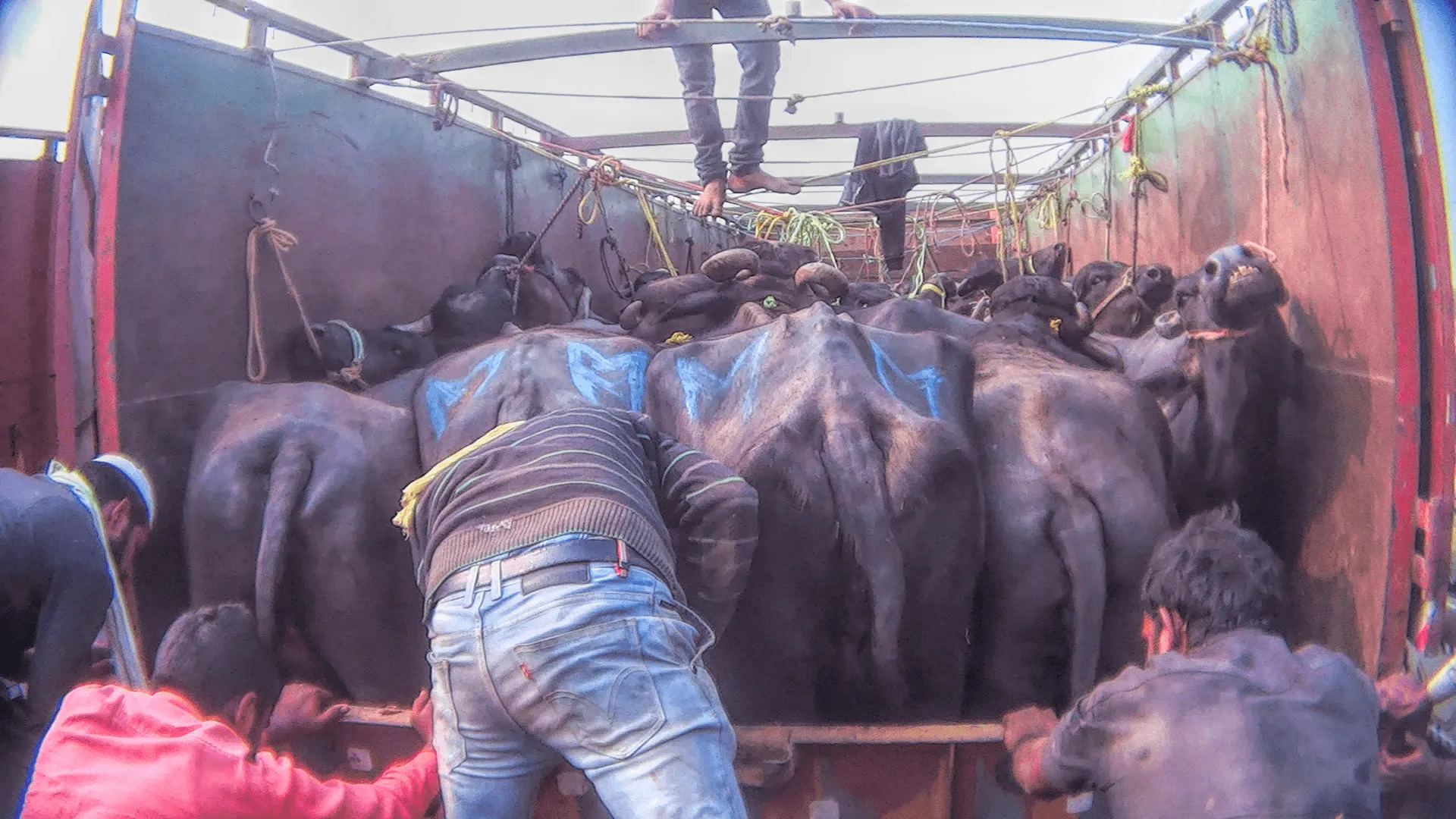
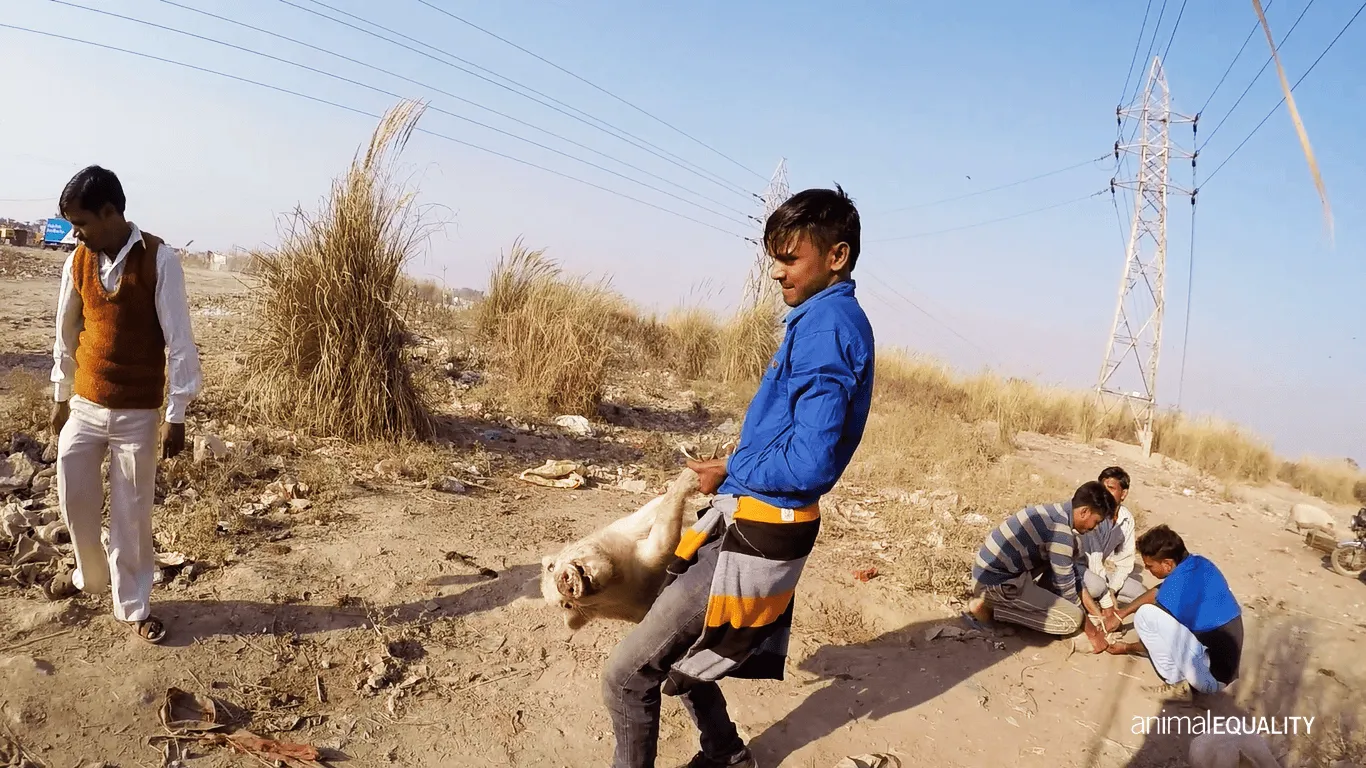
Pigs
Did you know that pigs are considered to be smarter than dogs? Yet the pork meat industry treats pigs brutally. When a pig is fit for slaughter, the owners trap the pig, tie the legs and hang them upside down on a wooden rod. In order to slaughter them, a hot iron rod is rammed into their hearts or through their throats several times which often does not lead to instant death.
Perhaps those who suffer the most are the young males. Once in every couple of months, the young male pigs are caught and their testicles are cut off without any pain relief with blunt knives and blades, broken glass pieces, etc.
Chickens
Chickens are the most abused land animals on the planet. Chickens spend their entire lives in filthy sheds with tens of thousands of other birds. They are bred to grow so large so quickly that their legs and organs cannot keep up, making heart attacks, organ failure, and crippling leg deformities common. Those who survive this miserable existence will typically be slaughtered at just 42 days old.
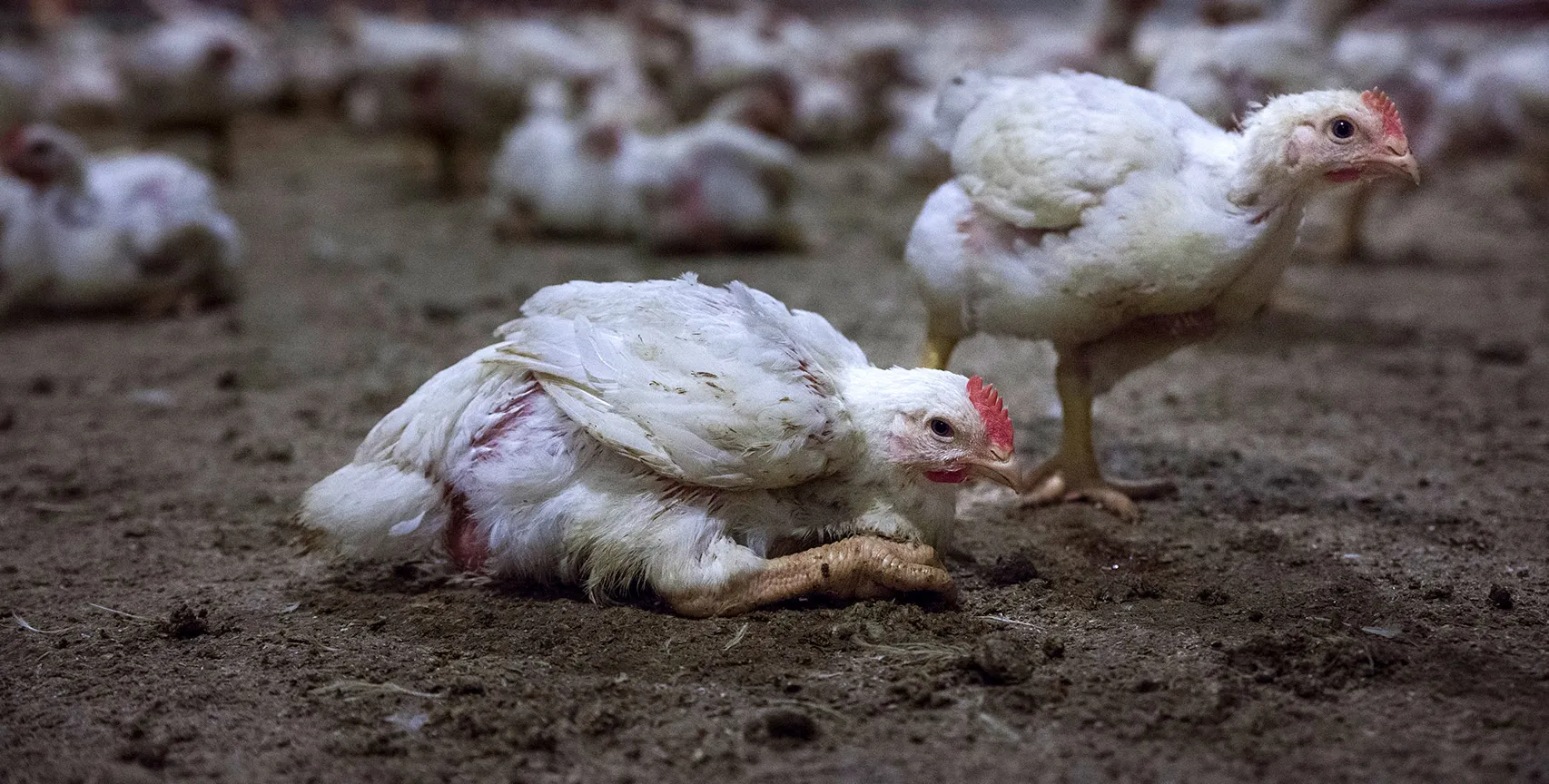
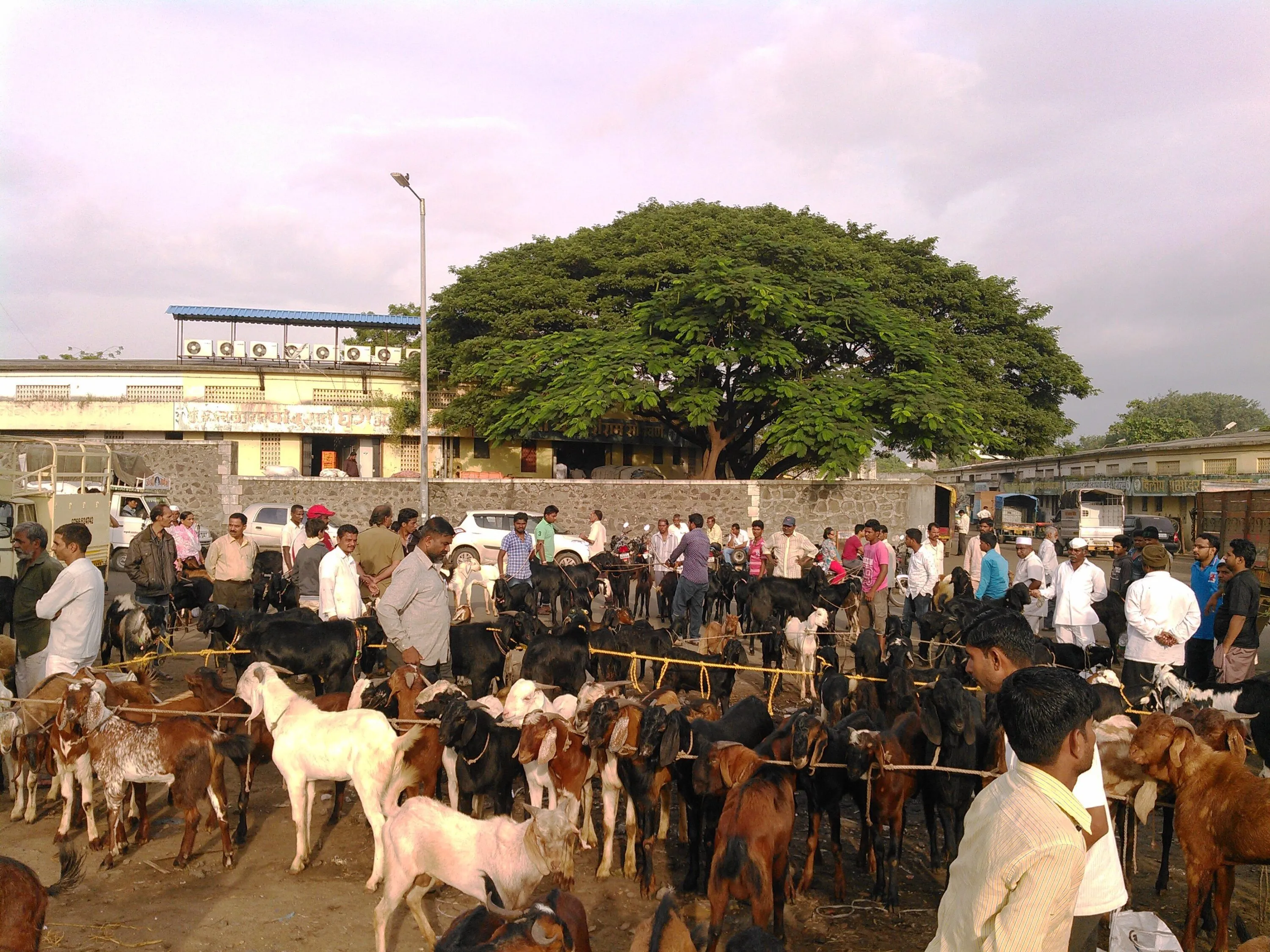
Goats
Goats are individual animals with distinct personalities. They are playful, affectionate, friendly, and mischievous, some are even bossy or aggressive. Goats show intense and focused interest in their new borns but this family bond is broken at farms. They are sold for meat through markets. They are packed in trucks for hours without food or water. At the meat shop they are slaughtered in the most brutal manner.
BY THE NUMBERS
BEYOND THE CRUELTY
The meat industry also has devastating effects on our planet and takes a toll on our health.
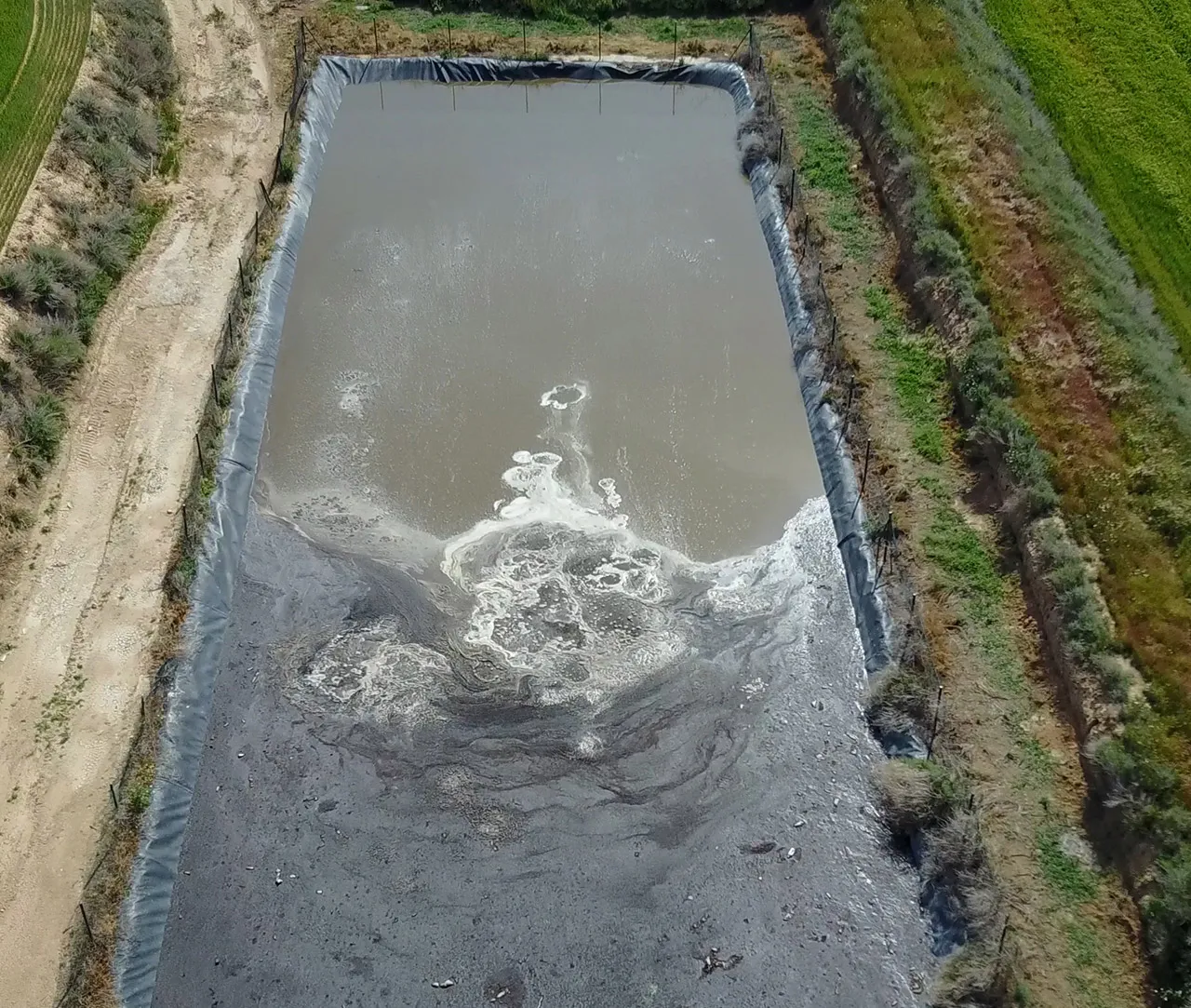
MEAT AND THE ENVIRONMENT
Raising animals for food requires massive amounts of land, food, energy, and water and causes severe environmental damage.
According to the Food and Agriculture Organization (FAO) of the United Nations, the world needs to shift away from a diet of animal products in order to combat the worst effects of climate change. For example, the FAO reports livestock factory farming contributes to almost 15 percent of global greenhouse gas emissions.
Meat production also uses an enormous amount of water. Water is used to grow crops for animals to eat, clean their enclosures and give animals water to drink. But the industry also creates organic and inorganic pollutants which contribute to the contamination of an estimated 70% of India’s surface water and an increasing percentage of its groundwater.
A risk to your health
Consuming animal products, including meat, puts you at an increased risk of several serious health conditions.
The World Health Organization recently declared processed meat a carcinogen that increases your risk of colon or rectum cancer by 18 percent.
Animal products contain saturated fats which contribute to India’s top killers: heart attacks, strokes, diabetes, and various types of cancer. Decades of scientific studies have linked saturated fat to cardiovascular disease – our country’s number-one cause of death, killing nearly 2,200 people every day.
In large part because of the increased health risks, people who consume meat don’t live as long as vegetarians and vegans. According to a study at Loma Linda University, of over 76,000 people, vegetarians were 12 percent less likely to have died during a six-year follow-up period than those who consumed meat.

RELEVANT CAMPAIGNS
Factory farms are secretive places. They work hard to conceal from the public the reality that farmed animals face. That is why Animal Equality works so hard to expose the cruelty inside and put an end to it.
ACHIEVEMENTS
Through investigations and the support of people like you, Animal Equality has won numerous successes for farmed animals around the world.
India
Ban on foie gras
Animal Equality campaigned to ban foie gras on the grounds that the process was cruel and extremely painful for ducks. The campaign resulted into the government banning the import of foie gras.
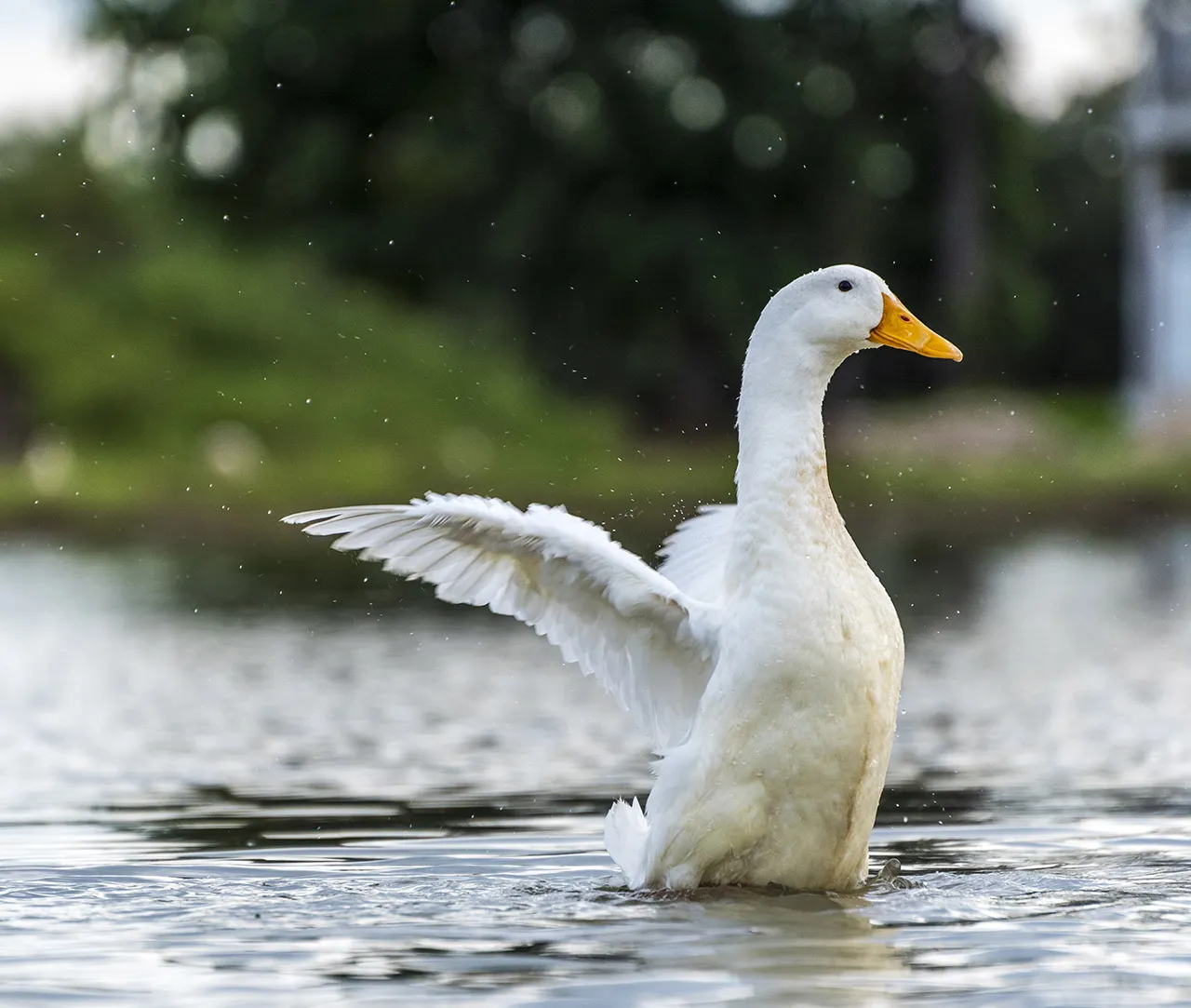
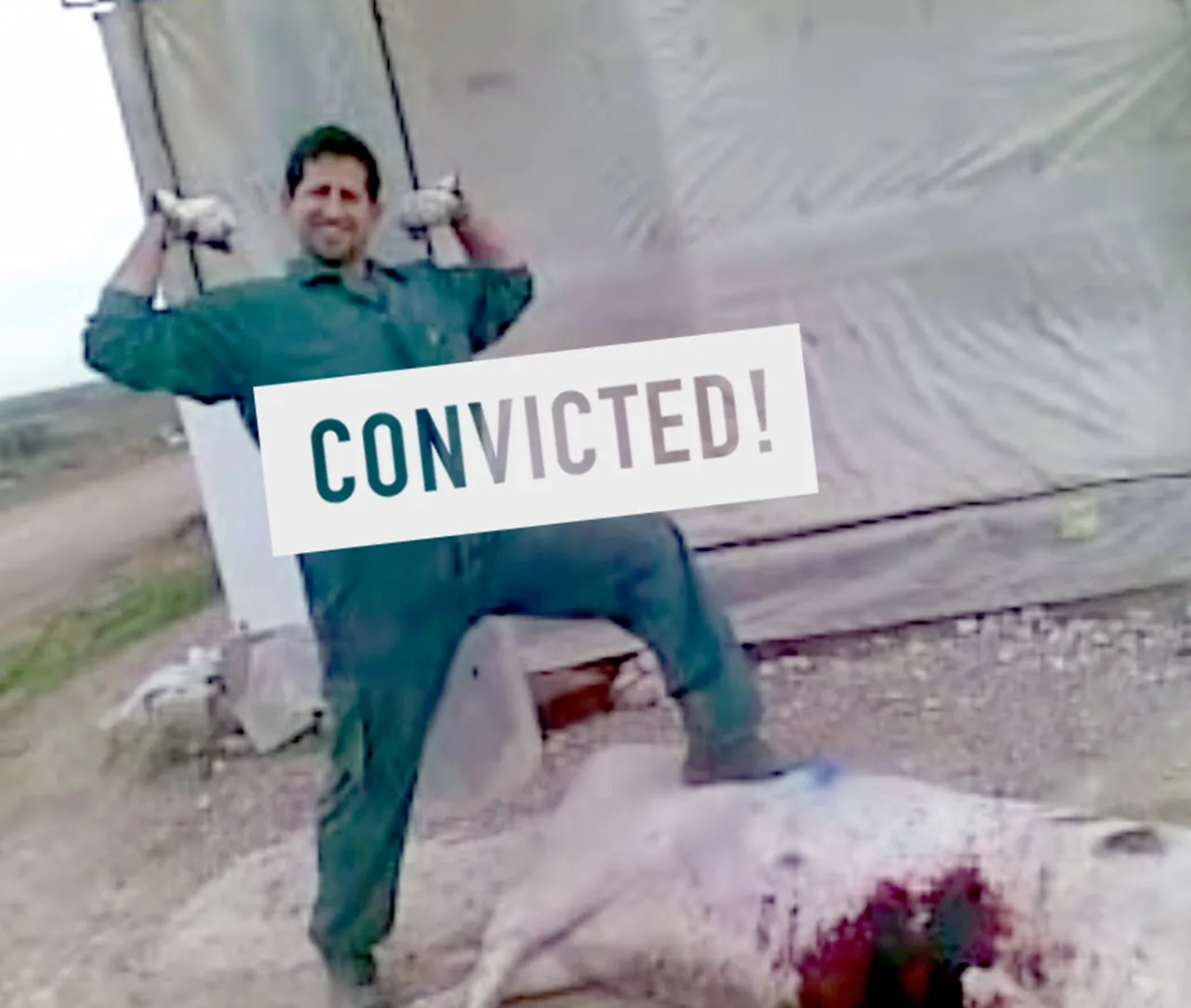
Spain
El Escobar sentence
In Spain, after a shocking investigation by Animal Equality, we helped secure the first ever conviction for cruelty to farmed animals.
WHAT CAN I DO TO HELP?
Volunteer With Animal Equality
Animal Equality’s dedicated network of volunteers work around the country, helping us share the stories of animals in need! Participate in demonstrations, hand out leaflets, organize iAnimal screenings – your support for Animal Equality helps create a kinder world for animals.


Love Veg!
Helping farmed animals is now easier than it has ever been. Today, a trip to the supermarket reveals there are more cruelty-free plant-based options than ever before. Cutting back or cutting out your consumption of meat will significantly reduce animals’ suffering, help the planet, and improve your health.

